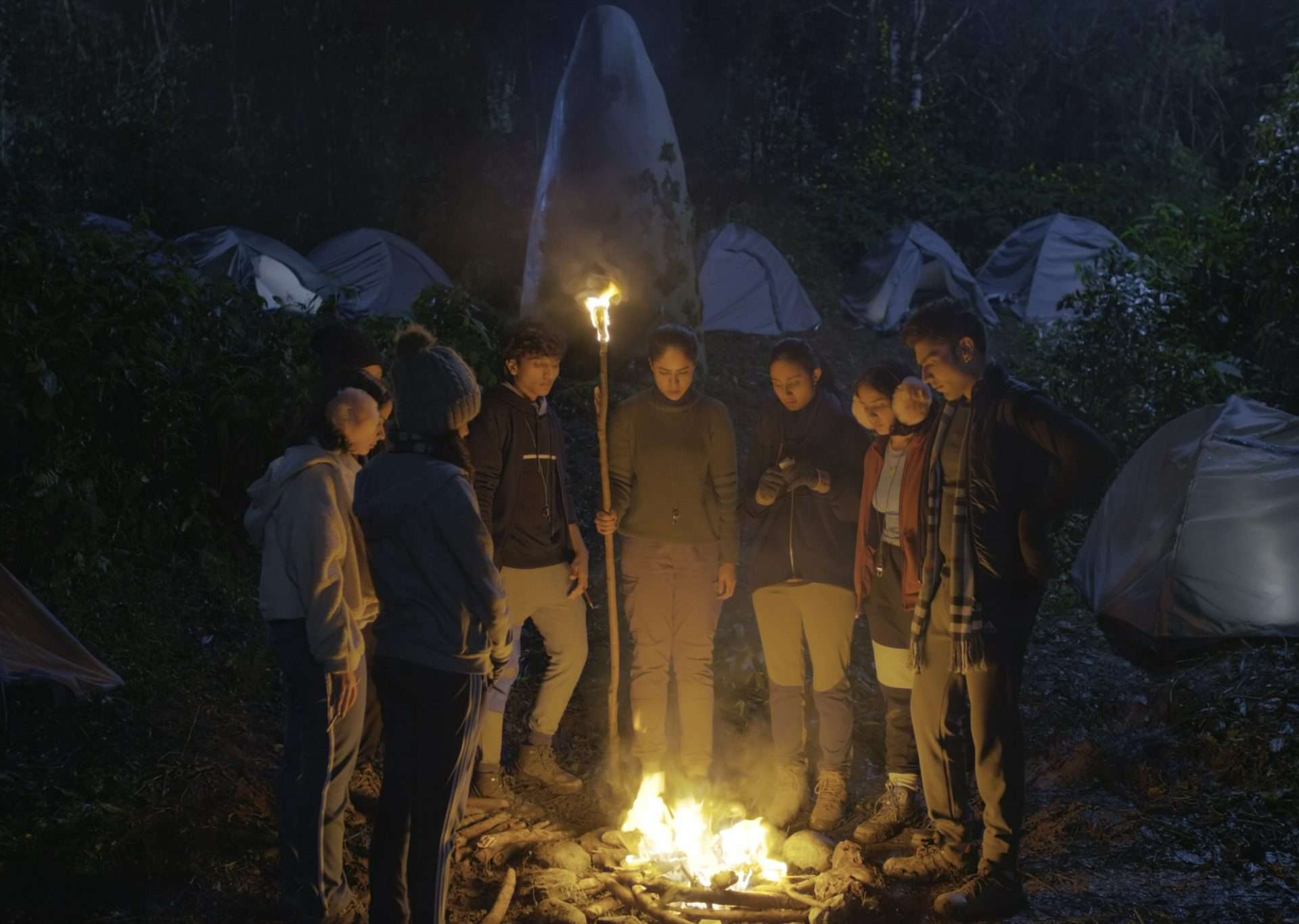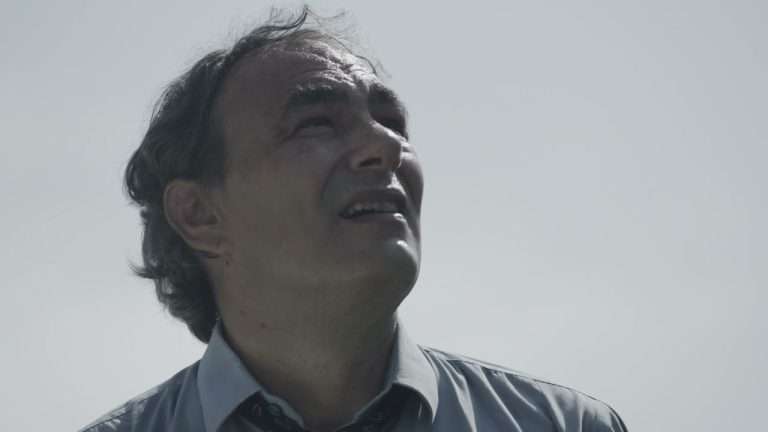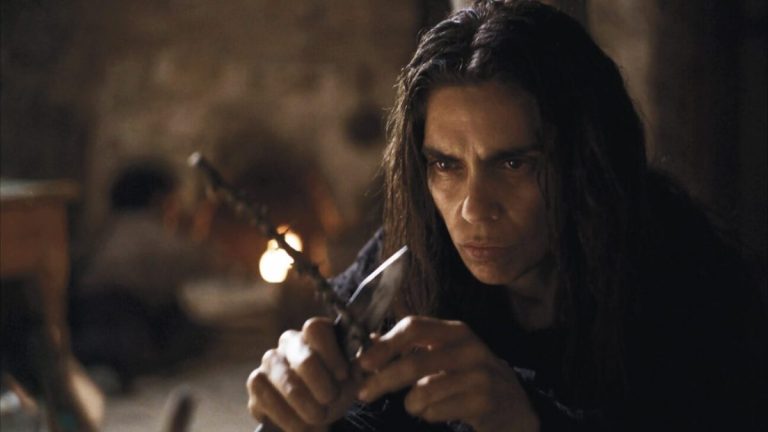IFFR’s vast selection of films this year, particularly in the Harbour section, presents a blend of various genres that evoke the magic of contemporary cinema at its finest. “The Youth Trilogy” by Wang Bing has set a significant benchmark for Asian cinema while “An Unfinished Film” by Lou Ye captivated audiences at Festival de Cannes. Moreover, “Grand Tour” by Miguel Gomes, which won the Best Director award at Cannes 2024, has also joined the Harbour section of IFFR. Also featured is Bhargav Saikia’s feature directorial debut, “Bokshi,” a modern interpretation of supernatural horror with a cult element that warrants a following.
Teen girl Anahita has numerous questions swirling in her mind. She’s constantly troubled by everything that surrounds her on the outside— extreme teasing and bullying, blame and rejection, family pressure, and suppression. However, her troubles extend beyond external factors. She is continuously troubled by what occurs on the inside, too, from a literal standpoint, where her mind and body appear to project a strange message— a signal that does not quite clarify the phenomenon. As a means to ‘correct’ her lifestyle, her family sends her to a boarding school where tensions mount amid further discoveries and enigmas.
One could imagine “Bokshi” as ‘The Adventures of Sabrina’ without the addition of humor, set in a world similar to ‘Tumbbad’, where fragments of clues become trapped in a maze—a maze that proves to be extremely challenging. The rituals that evoke memories of ‘The Wailing’ occasionally appear, yet it still maintains originality within its context, which is rich with new discoveries and innovative methods in its unique creative world.
Director Bhargav, possessing a profound admiration for mystic cinema from his short films (“The Black Cat” and “Awakenings”), skillfully crafts “Bokshi,” a film that embodies a holistic experience, perfectly suited for adolescent girls transitioning into adulthood in the contemporary era. The director explores the ongoing struggle that teenagers face with deteriorating mental health issues, the challenges related to sexual orientation, the pressure to conform to societal norms, and the absence of guidance to feel comfortable in their own skin, even when it is considered different. Instead of merely presenting these elements, Harsh Vaibhav’s screenplay ensures that all the issues receive thorough attention through a dark and grisly presentation, in which the hidden traits of Ahanika are meticulously dissected.
From a knowledge perspective, the film provides insight through informative and interactive discussions that enable viewers to understand the ideologies behind ancient reflections and spiritual journeys—an intelligent, cinematic yoga-ismic intervention. Ironically, the ongoing debates regarding these ideologies among the students in this film do not dull the atmosphere; rather, it is truly liberating to witness the values and passion director Bhargav exhibits towards cultural beliefs and supernatural teachings.

It’s even deeper when we see Anahita connecting with her history teacher, Shalini who also seems to share the same mysterious vibe, and the silent exchange of glances between them captures our attention. What’s even more intriguing and praiseworthy is how the director incorporates contemporary misogyny and misconceptions surrounding women, effectively aligning these issues with the discourse on masculism and social patriarchy while advocating for the empowerment of women in all aspects.
Despite a fantastic team effort performance in the film, Mansi Multani as teacher Shalini adds the game-changing characteristics in the film through her exquisite performance, almost similar to Konkona Sen Sharma in “Ek Thi Daayan.” We witness how deceptive yet subtly calming Shalini can be while also illustrating the confusion of good and evil in relation to her surroundings—almost evoking curiosity about her true intentions and motives.
A special note on veteran actress Swaroopa Ghosh on her brief yet impactful role as Bokshi’s grandmother, Kadambari, who somehow brings in the same energy as actress Seema Biswas would show in her films, where intense drama roles are always done with perfection. Siddharth Sivasankaran and A. Vasanth’s cinematography, with the aid of the colorist Prithvi Buddhavarapu, gave us the sense of primal terror in the right circle through the red palette along with the serenity of the silent jungles and cold weather – a weird combination that worked wonders.
Bhargav Saikia’s “Bokshi” is, in fact, not an entertainer but an influential film that creates an awareness spark among the new generations on the importance of dominion, self-confidence, and self-esteem to be able to withstand any form of barrier. Partitioned into multiple parts, “Bokshi” is undoubtedly an elegantly shot film that evolves into a revolution, incorporating thoughtful ideologies that invite multiple perceptions and actions.
The film brings out the individuality of every woman as a warrior in the right sense while also providing viewers with emotional comfort despite the darkness it portrays. The details of the tribe culture seem like a tribute to the indigenous tribes in India, highlighting the significance of preserving identity and embracing one’s origin, which do not easily fade away. Director Bhargav believes one’s origin is deeply embedded in the soul of a person, and it takes a century for that identity to blur, even at the slightest point. Shockingly, the last 30 minutes of the film changes its track completely, concentrating every aspect of witchcraft horror into a wild maze of pure innovation—a moment that is unmissable in Indian cinema.


![Why Don’t You Play In Hell? [2013]: An Independent Filmmaker’s Wet Dream!](https://79468c92.delivery.rocketcdn.me/wp-content/uploads/2015/12/12348625_1104286636256740_1882784607_n.jpg)
![Millennium Actress [2001] Review – An Uncannily Brilliant Journey through Memory](https://79468c92.delivery.rocketcdn.me/wp-content/uploads/2020/12/Millennium-Actress-768x418.jpg)


![Moonlight [2016]: Even boys get the blues.](https://79468c92.delivery.rocketcdn.me/wp-content/uploads/2017/01/moonlight-a24-poster.jpg)